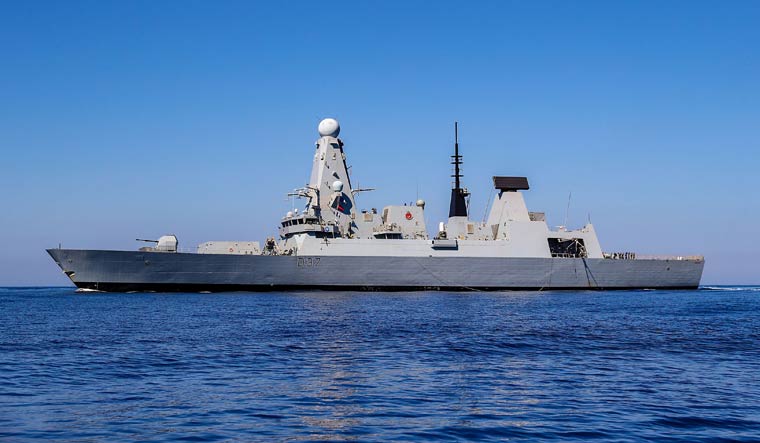
A week after the United States requested Germany to join in a naval mission to 'secure' the Strait of Hormuz and combat 'Iranian aggression', Germany's foreign minister Heiko Mas has stated that Germany "will not take part in the sea mission presented and planned by the United States".
Speaking to reporters while on a visit to Poland, Mas reiterated Germany's earlier stance that the US strategy of "maximum aggression" against Iran was wrong, preferring instead to de-escalate tensions. A government spokesperson said that Germany was reluctant to participate in the mission as its policy on Iran “differs significantly” from the US approach. “For us, it is important to pursue the avenue of diplomacy...and to seek talks with Iran to achieve a de-escalation.”
Germany’s defence minister, however, has stated that no final decision has been made.
Later in the day, the US Ambassador to Germany, Richard Grenell criticized Mas’s statement, telling the German newspaper Augsburger Allgemeine, "Germany is the biggest economic power in Europe. This success brings global responsibilities." Grenell added that “America has sacrificed a lot to help Germany remain part of the West”, highlighting “billions” of dollars spent in maintaining the US presence of 34,000 troops in Germany.
Iran had earlier stated that such a mission would be provocative and would “increase tensions”. Nevertheless, two British warships arrived in the Straits on July 29 to escort the country’s ships in the region. Calls for a European naval task force in the region have been welcomed by Washington
Background
The proposal for a European-led mission to the straits was originally made by Britain the previous week, following a series of escalations between the United Kingdom and Iran. An Iranian oil tanker allegedly bound for Syria was seized by Britain on July 4. Iran seized a Britain-bound tanker in response on July 20.
The escalation of tensions between the two came in the backdrop of the 2019 Persian Gulf crisis, which saw a series of escalations between NATO countries and Iran over shipping traffic in the Straits of Hormuz.
The Straits of Hormuz are a strategically crucial region for the global oil-shipping industry, with one-fifth of the world's oil travelling through the region on average each year.
UAE and Spain to hold back
At the same time, representatives from the United Arab Emirates held talks on maritime security with Iran in Tehran, a rare move given that the UAE had downgraded ties with Tehran in 2016 on the grounds that Iran had committed “continuous interference in the internal affairs of Gulf and Arab states”. The move comes weeks after the UAE withdrew most of its forces from the war against Iranian-backed rebels in Yemen.
According to the Spanish newspaper El Confidente, Spanish diplomats are also rejecting plans for a US-led mission in the Straits of Hormuz.

No comments:
Post a Comment